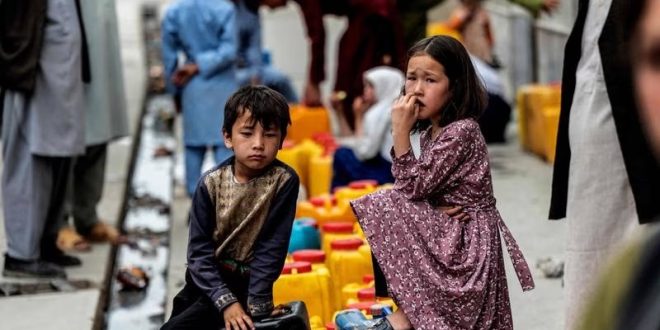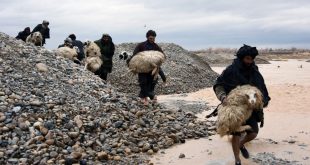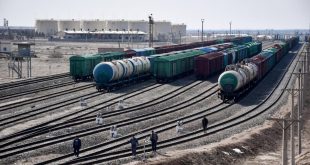AT News
KABUL – In the midst of a prolonged drought attributed to climate change, Kabul city is experiencing an acute water shortage, leaving residents grappling with dire consequences. With temperatures soaring up to 35°C, the situation has escalated drastically since April, pushing the city’s six million residents to queue for hours to access clean water.
Distressingly, more than half of Kabul’s population lacks access to clean water, posing severe health threats. Officials from the Ministry of Energy and Water warn that if the situation remains unchanged, life in the capital could become untenable within a decade.
Many water resources in Kabul are often contaminated, requiring additional time and expense to boil the water and make it safe for drinking. The scarcity of safe water has forced many residents to draw from unsafe sources, leading to extremely low water quality in 30 out of 34 provinces, according to the World Food Programme. The consequences of consuming contaminated water include severe illnesses like cholera, dysentery, typhoid, and kidney stones. From January 1 to May 21, 2023, Afghanistan reported 54,908 cases of cholera, including 20 fatalities, as per the European Centre for Disease Prevention and Control.
Environmental activist Akhar Sohail has been working diligently to raise awareness about climate change and the urgent need to conserve water. However, convincing people to take action has proven challenging, especially in the face of the ongoing conflict and limited access to water in many regions.
The situation is particularly dire in rural areas, where a recent conflict between the Taliban and Iranian border police further exacerbates the water crisis. Despite the community’s resilience, the depletion of existing water sources is rapidly escalating, and experts warn that Kabul’s residents face a precarious future if decisive actions are not taken.
As the water crisis worsens, the Afghan government, international organizations, and communities must come together to find sustainable solutions to address the immediate needs for clean water and promote long-term resilience against the impacts of climate change. Failure to act urgently could lead to irreversible consequences for Kabul and its residents, both in terms of survival and public health.
 Afghanistan Times
Afghanistan Times




